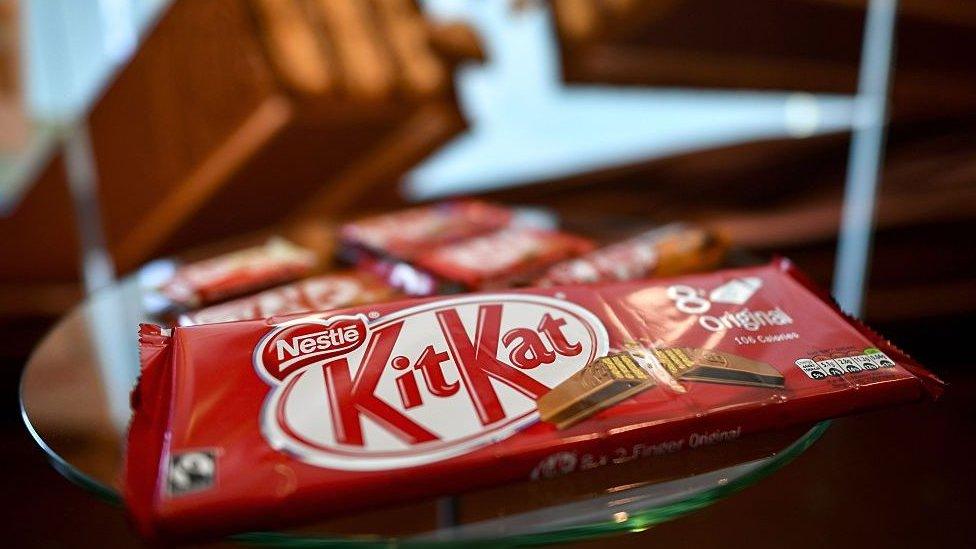Nestle pulls KitKat and Nesquik out of Russia
- Published

KitKat bar
Swiss food giant Nestle is pulling its popular brands out of Russia but will still sell essential foods.
The firm stopped investment in the country earlier this month but has now suspended sales of brands such as KitKat and Nesquik.
It follows fierce criticism of the firm by Ukrainian politicians.
A growing number of Western brands have suspended operations in Russia in protest at the war but a few are staying put.
"As the war rages in Ukraine, our activities in Russia will focus on providing essential food - not on making a profit," Nestle said.
"We are fully complying with all international sanctions on Russia," it added.
Ukraine's President Volodymyr Zelenskiy criticised Nestle for still conducting business in Russia in a streamed speech to protesters on Saturday.
And earlier, Ukrainian Prime Minister Denys Shmyhal tweeted that Nestle boss Mark Schneider "shows no understanding".
Allow X content?
This article contains content provided by X. We ask for your permission before anything is loaded, as they may be using cookies and other technologies. You may want to read X’s cookie policy, external and privacy policy, external before accepting. To view this content choose ‘accept and continue’.
He wrote: "Paying taxes to the budget of a terrorist country means killing defenceless children and mothers. Hope that Nestle will change its mind soon."
That led to #BoycottNestle trending on Twitter.
The company has been gradually reducing its activity in Russia since the the start of the Ukraine war, but has been under pressure to pull out altogether.
It scrapped advertising and capital investments and earlier this month stopped shipments of non-essential products like Nespresso coffee capsules and San Pellegrino water.
But it continued to sell many of its brands saying: "We have a responsibility toward our more than 7,000 employees in Russia - most of whom are locals".
The latest move will leave it selling just infant food and medical and hospital nutrition.
"While we do not expect to make a profit in the country or pay any related taxes for the foreseeable future in Russia, any profit will be donated to humanitarian relief organisations," it said.
"We stand with the people of Ukraine and our 5,800 employees there."
So far international brands such as McDonald's, cosmetics firm L'Oreal, fashion retailer H&M and tech giant Apple have suspended or limited their activities in Russia.
A minority of others continue to produce non-essential goods in the country, while companies such as M&S and Burger King say complex franchise agreements make it impossible to close their shops in Russia.